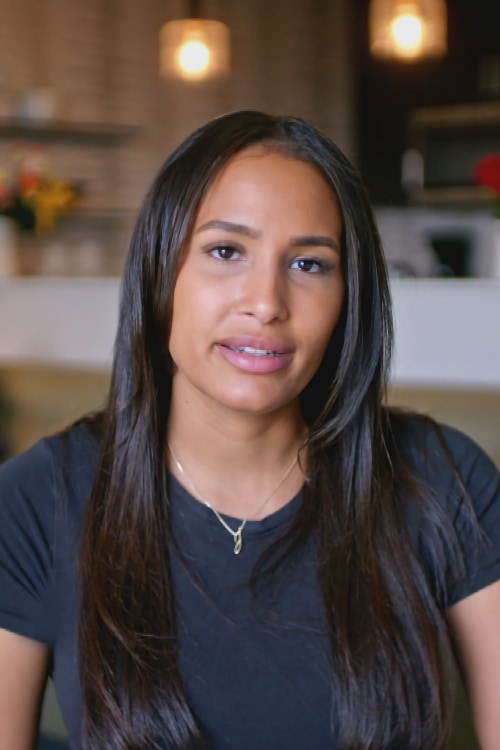Lifetime’s newest reality TV show follows seven women from around the world—including Australia, Germany, Spain, the United Kingdom—who are dating men in America.
Some women come for visits; one moves from Australia to Ohio to be with her American fiancé. Like Love is Blind, women have talked to these men, but in some cases, have never actually met, so their relationships face distinct challenges.
On Prison Brides, they haven’t met in person or are not together because, as the title suggests, the men are incarcerated.
Why are people from around the world coming to the U.S. to date? Perhaps it’s because there are more options here, as we incarcerate more of our citizens people than any other country on the planet.
The women also seem to have a good understanding of the United States. Emma, talking to her parents about her fiancé, says, “He did a carjacking, and he had a firearm on him—which isn’t that scary because everybody in America has a firearm.”
Prison Brides (Lifetime, Wednesdays at 9:30) follows seven couples and their relationships, including the challenges posed by incarceration, including judgment from their families and others.
One mother asks her daughter, Svea, “He never lied to you? It was always honest?” and then stereotypes incarcerated people by wanting to know if he’s been “asking for money like a lot of prisoners do.”
There’s also skepticism about long-distance dating and being catfishing—from both the women and the men.
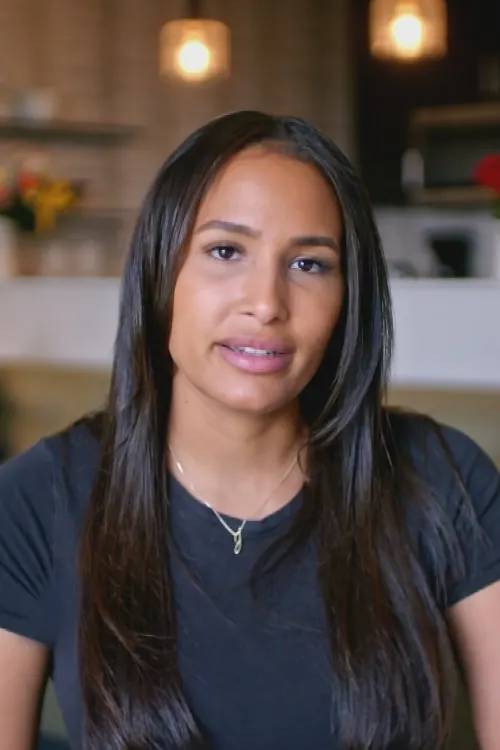

I interviewed Prison Brides executive producer Peter Usher, and he said that “these relationships are a bit like an old-fashioned courtship, the type we might have had two generations ago. It’s a platonic relationship. It involves letter writing, multiple phone calls,” he said. “Most of the cast were quite fed up with modern dating and online dating, and so this represented something completely different.”
What’s not new, of course, is reality TV shows that follow couples with one partner who is incarcerated. Most notably, there is the Love After Lockup franchise, which is the core of an entire network, WE tv, and traffics in interpersonal drama.
“We felt we needed to find a fresh approach if we were going to tackle it,” Usher told me.
They found, via a criminologist who works on other productions with them, an online community of people who date incarcerated people.
“These were young, independent, strong women, good families who were choosing to take this sort of unconventional and quite difficult path,” he said.
Another difference: Prison Brides’ production company, Big Little Fish, is based in the UK, and while the showrunner is American, Usher said that “the majority of the team have been British,” and “possibly that also is part of what may give it a slightly different sensibility.”
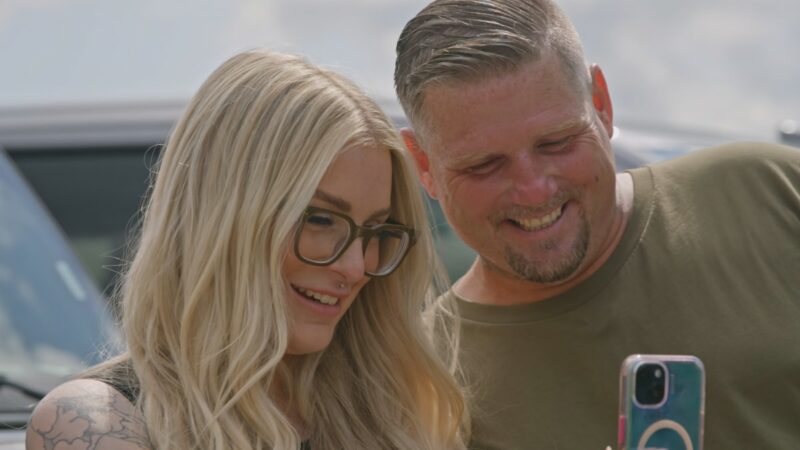



When they began reaching out to people in the online community, they found women willing to be followed by cameras.
“I was surprised that it wasn’t harder,” Usher said. “We were very earnest and sincere about our desire to tell their stories truthfully and to be non-judgmental. These women, they get a lot of criticism for the choices that they’ve made. They get that from members of their own family. They get it from the online community. And so perhaps having somebody that simply said, Look, we’re not saying we just want to tell a romantic story. We know these relationships are challenging, and we would need to tell the ups and the downs, but we will do it truthfully and faithfully—They seem to respond well to that.”
Even without a reality TV show camera crew, the women would be traveling to America, for which they “spend quite significant amounts of money,” Usher said. I asked if the show is paying for travel, and he said no.
The women keep producers informed of their plans, and Usher said “it’s accepted that when they do [travel], we will simply follow them. If we need them to travel to America for a sort of specific event or a specific scene that we want to film—if we want them to meet a relative of the inmate that they’re dating, for example, because that is going to help amplify their story—then we would help them with the cost of that trip. But mostly we simply follow what’s actually happening.”
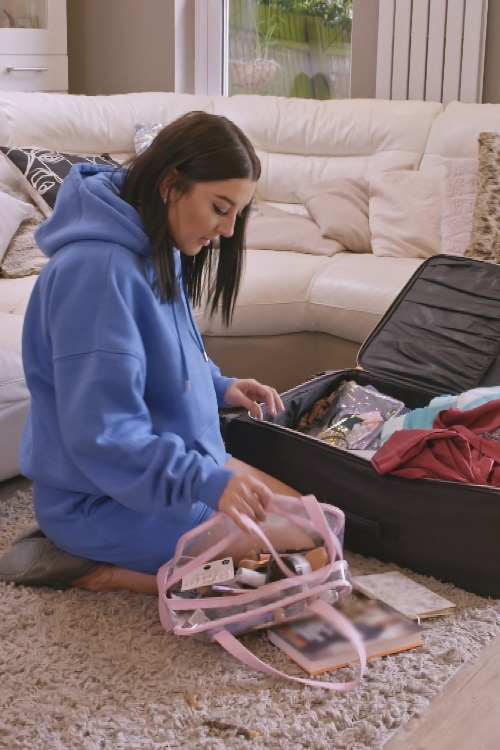

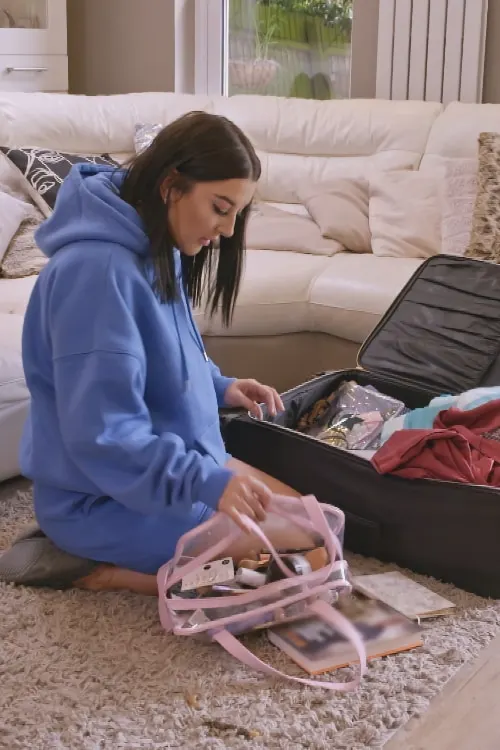

The show has been filming its couples for 18 months—an incredibly long time in reality TV—and is actually still filming, hoping to include one last wedding in this 10-episode first season.
“The reason why we’ve been filming for so long is in order to follow these stories wherever they go,” Usher told me. “That’s been challenging–not least because sometimes one simply doesn’t know where the story’s going.”
“There’s a sort of temptation in television, I think, that you always want to know in advance what’s going to happen,” he added. “It takes, I’d suggest, a degree of courage simply to sit back and let the stories go where they will. Often that can create a few headaches: We had two cast members getting married on the same day, which was a bit challenging in prisons that were two hours apart.”
One way Prison Brides differs from other shows is that it has the consent of its cast; one incarcerated person declined to participate, and thus that couple was not cast.
That’s different from other reality TV shows that film in prisons, such as A&E’s 60 Days In, which make commercial entertainment out of people who are in prison.
The #AIRS Campaign, which seeks to “Abolish Incarcerated Reality Shows,” says such reality TV “capitalizes on the hardships incarcerated individuals face” and is “exploitation [that] not only contributes to the social stigma surrounding them but also hinders their opportunities for reintegration into their communities after release.”
I haven’t seen the full Prison Brides series, just the first two episodes, and will defer to those featured—and those who watch—to determine whether it is part of that pattern or breaks it.
However, in the early episodes, Prison Brides does make prisons, and the people who are there, seem scary, such as with ominous music cues. I asked Usher why they made those editing choices.
“We approached it imagining how the audience imagine,” he told me. “These are women who, in some cases, haven’t met their partners, and their partners are serving sentences for some quite serious crimes. I think, personally, if or when the audience try and put themselves in the footsteps of our cast, it is intimidating. The music reflects that.”
Usher said that while Prison Brides aims to show what the men are faced with, even while being focused on each couple’s relationship.
For example, one of the men shares how “people weren’t giving him a chance, and how difficult it was” with his partner, and “so then that becomes a relationship story, but also a way for us to look at how challenging it is for an inmate once they are released, and the sort of prejudices they come up against.”
“One has to acknowledge it’s incredibly difficult for someone who’s been incarcerated to find their freedom, and then try and make a life for themselves,” he added. “We did certainly want to follow that story.”
Usher also said “there are some quite inspiring stories that will be told across the season of the inmates and what they did to survive inside, what they learned from it, and what their ambitions are.”
He hopes Prison Brides will “give the audience a better picture of how difficult—the kind of prejudices that inmates can come up against. The theory is that once you’ve served your time, you’ve done your time, but it doesn’t always pan out that way. If you’ve got people unwilling to give [chances], or this sort of prejudice against an inmate, then it makes it even harder.”
This post was originally published on this site be sure to check out more of their content.




